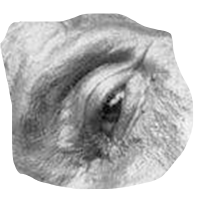![]()
![]()
Archiving in pre-colonial Africa was
participatory; a community activity staggered according to the levels and the
importance of what had to be archived. If the general archives had a public
character; scientific ones were of a secret character; because, they constitute
one of the elements of political power. Traditional technopolitics was
something sacred. It is the mastery of technology that made the rise and apogee
of the pre-colonial kingdoms. It was the responsibility of the political power
to protect and ensure the transmission from generation to generation of the
technology of processing iron, gold, copper etc. The raw materials were
processed in the kingdoms before being traded. Today, things have changed.
Africa has become a mere place of extraction of raw materials which are
processed away and come back in finished form. The more technology moves away,
the more political power weakens. And yet, in pre-colonial Africa, the secrets
of political power as well as of technology were sacred and archived by a
special caste, and it is blacksmiths who enthroned the kings. Thus, traditional
technopolitics is better expressed in the King-blacksmith formula.
Technologies are always compound. They are composed of
diverse agents of interpretation, agents of recording, and agents for directing
and multiplying relational action. These agents can be human beings or parts of
human beings, other organisms in part or whole, machines of many kinds, or
other sorts of entrained things made to work in the technological compound of
conjoined forces. Remember also, one of the meanings of compound is “an
enclosure, within which there is a residence or a factory”—or, perhaps, a
prison or temple.[1]
[1]Haraway, 2008. CritterCam: Compounding Eyes in Naturecultures, Where Species
Meet. Pg 250










